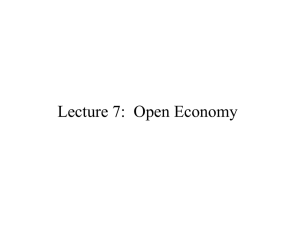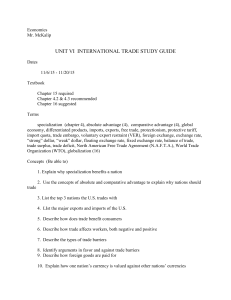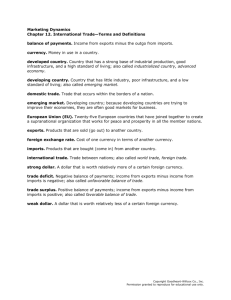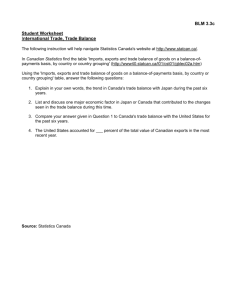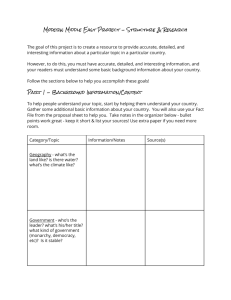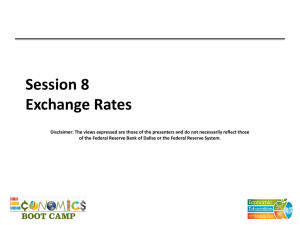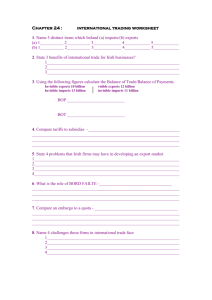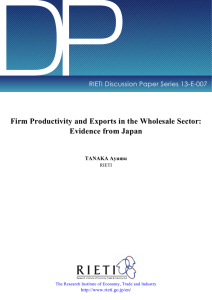University of Illinois Department of Economics Econ 103 – Fall 2014
advertisement
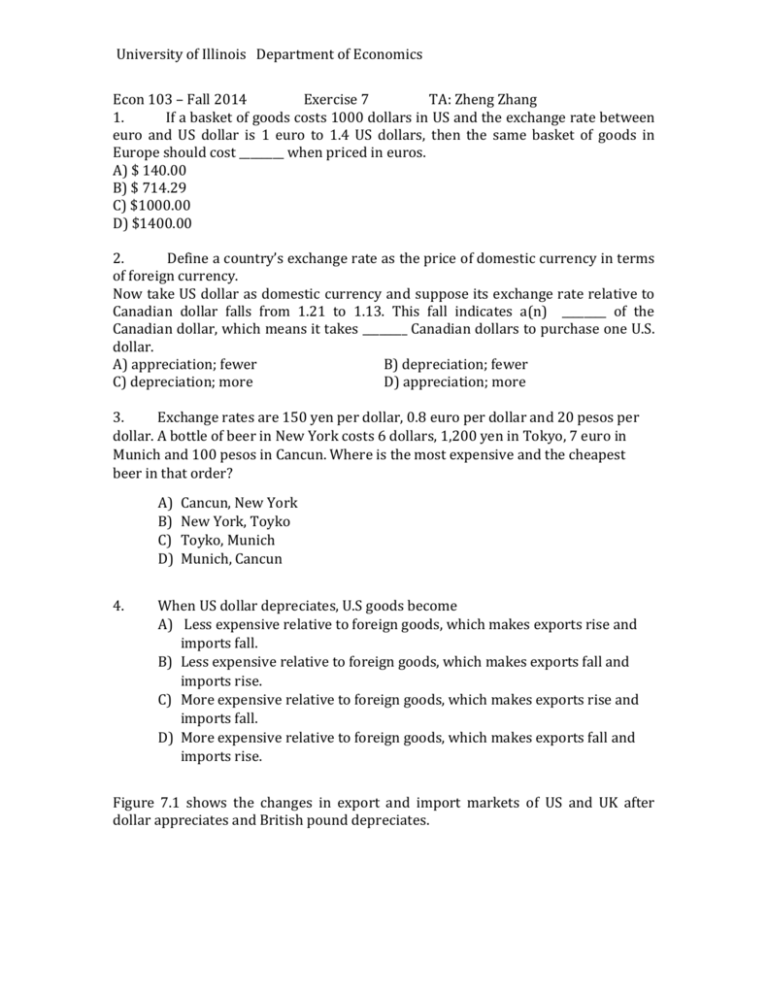
University of Illinois Department of Economics Econ 103 – Fall 2014 Exercise 7 TA: Zheng Zhang 1. If a basket of goods costs 1000 dollars in US and the exchange rate between euro and US dollar is 1 euro to 1.4 US dollars, then the same basket of goods in Europe should cost ________ when priced in euros. A) $ 140.00 B) $ 714.29 C) $1000.00 D) $1400.00 2. Define a country’s exchange rate as the price of domestic currency in terms of foreign currency. Now take US dollar as domestic currency and suppose its exchange rate relative to Canadian dollar falls from 1.21 to 1.13. This fall indicates a(n) ________ of the Canadian dollar, which means it takes ________ Canadian dollars to purchase one U.S. dollar. A) appreciation; fewer B) depreciation; fewer C) depreciation; more D) appreciation; more 3. Exchange rates are 150 yen per dollar, 0.8 euro per dollar and 20 pesos per dollar. A bottle of beer in New York costs 6 dollars, 1,200 yen in Tokyo, 7 euro in Munich and 100 pesos in Cancun. Where is the most expensive and the cheapest beer in that order? A) B) C) D) 4. Cancun, New York New York, Toyko Toyko, Munich Munich, Cancun When US dollar depreciates, U.S goods become A) Less expensive relative to foreign goods, which makes exports rise and imports fall. B) Less expensive relative to foreign goods, which makes exports fall and imports rise. C) More expensive relative to foreign goods, which makes exports rise and imports fall. D) More expensive relative to foreign goods, which makes exports fall and imports rise. Figure 7.1 shows the changes in export and import markets of US and UK after dollar appreciates and British pound depreciates. University of Illinois Department of Economics 5 In the US imports market (Upper Left), at each price in $, British firms get______ £ for their goods. Thus, they will supply _________ goods to US, which is represented as supply curve shifting ________. A less ; fewer ; up B less ; more ; down C more ; fewer ; up D more ; more ; down 6 In the US exports market (Upper Right): At each price in $, UK consumers will have to pay _____ for US goods. Thus, they will demand ________ US goods: demand for US exports will _________. The amount of US exports decreases in the new equilibrium. A less ; less ; decrease B less ; more ; increase C more ; less ; decrease D more ; more ; increase 7 In UK exports market (Lower Left): At each price in £, Americans has to pay_____ (in $) for UK good. Therefore, Americans will demand ______ UK goods: demand for UK exports will__________. UK exports a higher amount of goods to US in the new equilibrium. A less ; fewer ; decrease University of Illinois Department of Economics B less ; more ; increase C more ; fewer ; decrease D more ; more ; increase 8 In UK imports market (Lower Right): At each price in £, US firms will get______ $ for their products. Therefore, the supply of US goods (= UK imports) will be ________ and the supply curve shifts ______. UK imports fewer US goods in the new equilibrium. A less ; less ; up B less ; more ; down C more ; less ; up D more ; more ; up 9 Who BENEFIT from an appreciation in US dollar and a depreciation in British pounds A US exporters and UK consumers of US goods B US exporters and US consumers of UK goods C UK exporters and US consumers of UK goods D UK exporters and UK consumers of US goods 10 Who LOSE as a result of an appreciation in US dollar and a depreciation in British pounds A US exporters and UK consumers of US goods B US exporters and US consumers of UK goods C UK exporters and US consumers of UK goods D UK exporters and UK consumers of US goods University of Illinois Department of Economics Answer Key: 1. B 2. A 3. D 4. A 5. D 6. C 7 B 8 A 9 C 10 A
